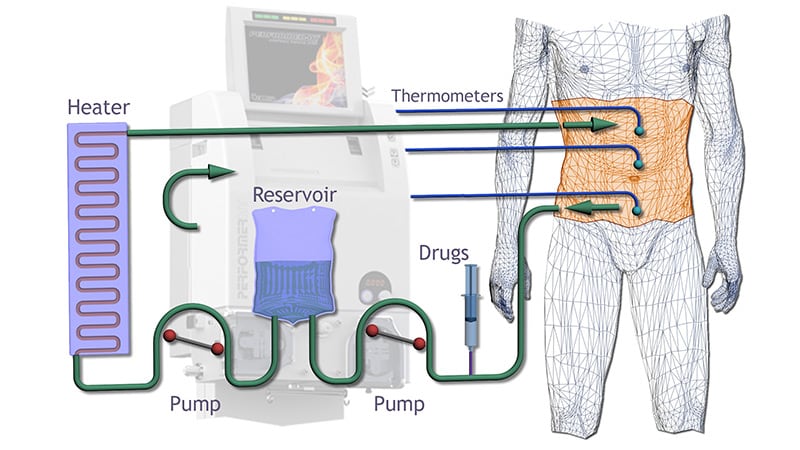Paclitaxel Shows Promise: A Viable Alternative to Cisplatin in Ovarian Cancer HIPEC

For years, cisplatin has been a cornerstone of treatment for advanced ovarian cancer, particularly within the context of Hyperthermic Intraperitoneal Chemotherapy (HIPEC). However, the potential for severe side effects and the desire for alternative treatment options have fueled research into other chemotherapy agents. Now, a significant new study reveals that paclitaxel, a widely used chemotherapy drug, demonstrates comparable efficacy to cisplatin when used in HIPEC for patients with advanced ovarian cancer. This finding offers a potentially less toxic and equally effective approach to combating this challenging disease.
Understanding HIPEC and the Challenge of Ovarian Cancer
HIPEC is a specialized treatment modality where chemotherapy drugs are administered directly into the abdominal cavity after surgical removal of visible tumors. This allows for high concentrations of the drug to target residual cancer cells, leading to improved outcomes. Ovarian cancer, unfortunately, often presents at an advanced stage, making HIPEC a crucial tool in the treatment arsenal. Cisplatin, while effective, is known for its adverse effects, including kidney damage, hearing loss, and peripheral neuropathy. Finding a suitable alternative with similar efficacy but reduced toxicity is a major goal for oncologists.
The New Study: Paclitaxel vs. Cisplatin in HIPEC
The study, recently published in a leading medical journal, retrospectively analyzed data from a large cohort of patients with advanced ovarian cancer who underwent HIPEC. Researchers meticulously compared outcomes in patients who received paclitaxel-based HIPEC versus those who received cisplatin-based HIPEC. The results were striking. Both regimens demonstrated comparable disease-free survival (DFS) and overall survival (OS). This means that patients treated with paclitaxel had similar chances of remaining cancer-free and living longer compared to those treated with cisplatin.
Why is this Significant?
This research has several important implications:
- Reduced Toxicity: Paclitaxel is generally associated with a more favorable toxicity profile than cisplatin, potentially leading to a better quality of life for patients undergoing HIPEC.
- Treatment Options: The findings expand the treatment options available for patients with advanced ovarian cancer, allowing clinicians to tailor treatment strategies based on individual patient characteristics and tolerance.
- Future Research: This study encourages further investigation into paclitaxel-based regimens in HIPEC, including exploring combinations with other chemotherapy agents and assessing long-term outcomes.
Looking Ahead
While these results are promising, it's important to note that this was a retrospective study. Prospective, randomized controlled trials are needed to definitively confirm these findings and further elucidate the optimal use of paclitaxel in HIPEC. However, the current data provide compelling evidence that paclitaxel represents a valuable and potentially superior alternative to cisplatin in the treatment of advanced ovarian cancer when delivered via HIPEC. This offers renewed hope for improved outcomes and a better quality of life for women battling this devastating disease. The shift towards less toxic, yet equally effective, treatment options marks a significant step forward in the fight against ovarian cancer.






